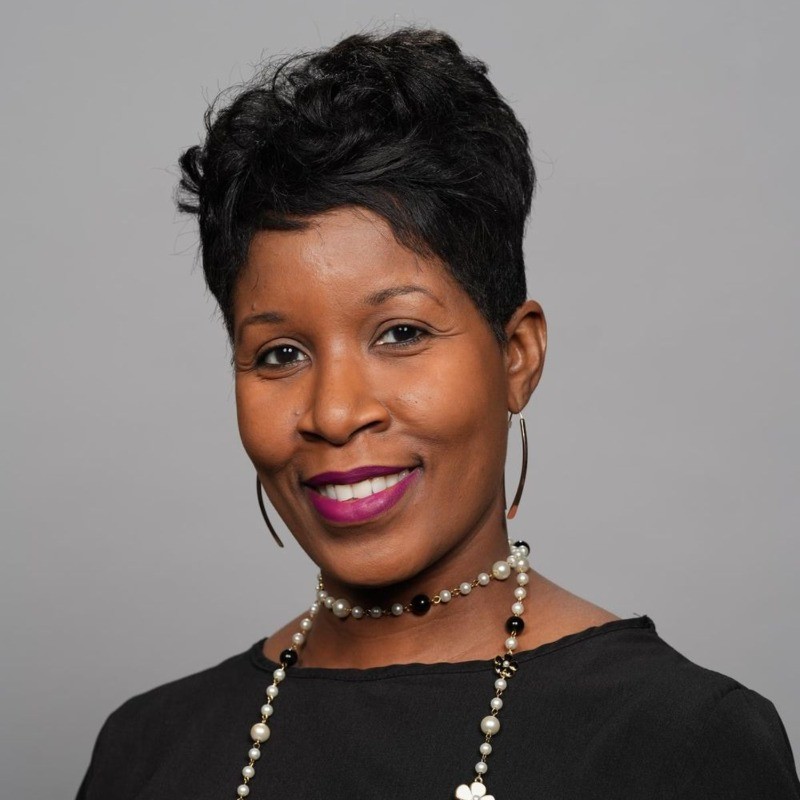Few phrases have been in the headlines in President Trump’s first two weeks back in office more than “diversity, equity and inclusion.” Following through on his pledges to curb “wokeness,” Trump quickly disbanded federal DEI programs, revoked decades of orders aimed at bolstering DEI in the federal government, repealed affirmative action compliance requirements for federal contractors dating to the 1960s and even said diversity hiring efforts could be to blame for last week’s D.C. aviation disaster.
One of the most influential actions for employers may have come in the form of an executive order that instructed the attorney general to submit a report later this year laying out “appropriate measures to encourage” the private sector to end corporate DEI work. The order went on to say that the government would “identify up to nine” investigations of public companies, nonprofits and other entities for their “illegal discrimination and preferences, including DEI,” and would consider “litigation that would be potentially appropriate.”
“The orders seek to intimidate all employers,” the American Civil Liberties Union wrote on its website in response. “The strategy is clear: Bully everyone into dropping programs that ensure equitable workplaces by falsely equating diversity efforts with discrimination.”
Will it work?
HR’s role in the future of corporate DEI
Before Trump took office, HR leaders were already bracing for the impact on DEI. In a survey in late 2024 by Gartner, half of HR leaders polled expected the new administration to impact corporate DEI—more than workforce migration policies, labor and employment regulations, employee benefits and other areas. In addition, more than one-third anticipated new regulations would restrict their DEI work.
Trump’s positioning comes as waves of large corporations have publicly stepped back from DEI commitments in the last few months; however, the retreat hasn’t been universal, as employers like Costco, Apple and JPMorgan Chase reiterated their commitment to corporate DEI in recent weeks.
“I think what we’re going to see is, unfortunately, increasing polarization on this topic,” says Sarah Reynolds, chief marketing officer at HR software provider HiBob.
Some organizations may feel the legal pressure to walk back DEI, Reynolds says, while others could use the Trump administration’s move as a cover—those who may not have been genuinely invested in DEI or weren’t seeing the ROI and will take the current environment as “convenient” way to back out. Still others, however, will “push forward because they know it’s the right thing to do,” they say.
Now is the time, says Davey Shlasko, founder and director of Think Again Training & Consulting, for organizations to dive deep into the roots of their DEI work—whether it’s for the business case of reaching diverse customers, to drive employee retention or for the broader alignment with organizational values.
“Most organizations don’t do DEI initiatives because they’re popular with national leaders, but rather because they align with the organization’s values and purpose, and those haven’t changed,” Shlasko says.
Interestingly, Opal Wagnac, senior vice president of market and product strategy at HCM technology provider isolved, notes that small and midsized businesses are largely bucking the trend of DEI rollbacks.
“They’re doubling down,” she says, “because they see inclusivity as a business necessity, not a political buzzword. These businesses don’t have time for PR moves; they’re focused on building workplaces where people want to stay and grow.”
Ahead: Missing a key solution for engagement and more?
While some larger companies may hit pause on corporate DEI—which Wagnac calls a “short-sighted decision that could cost them in the long run”—she says the “smart ones will keep moving forward because they know their employees—and their bottom lines—depend on it.”

At companies that do choose to de-emphasize DEI, the move will have a marked impact on those leading HR, Wagnac says.
“HR leaders are the heartbeat of workplace culture, and let’s be honest—this shift puts them in a tough spot,” she says. “They’re now expected to deliver on engagement, retention and performance goals while losing a key tool that drives all three.”
While the rest of the C-suite or the board may not “feel the impact immediately,” HR knows the long game, she says: They likely can predict the negative impact on customer satisfaction, innovation, competitive advantage and profitability—and the challenge that dropping DEI investment will present for HR’s role in helping the company achieve those outcomes.
The shifts in corporate DEI may prompt some HR professionals to leave their current organization if it doesn’t “land on the side of the spectrum that aligns with your personal beliefs,” Reynolds says. “If you believe that DEI work is really important, you probably want to find an organization that believes those same things to be true. Or, you can choose to stay in an organization that doesn’t.”
Yet, Reynolds says, they have noticed many HR leaders stepping up—using this moment to educate, push back and step into their role as strategic leaders.
“I think modern HR leaders are very much in the camp of understanding that diversity, equity, inclusion, belonging is an important part of the work that we do,” they say. “And for the most part, people are asking questions about, what can I do—versus what can’t I do?”
Keeping DEI ‘alive’—with or without the title
The answer to that question will look different across organizations, but it will largely come down to proactive leadership from HR—and getting close with legal teams and the rest of the C-suite, Reynolds says.
HR needs to strategize to “find ways to keep DEI alive,” Wagnac says—”regardless of what the official policy says.”
“Good HR leaders don’t just wait for an executive order or a budget allocation to do what’s right,” she adds.
For some organizations, that policy may look different or have a new name, as many organizations are dropping the “diversity” or “equity” portions of their commitments and investing instead in “inclusion” or “belonging.”

Such a shift may help HR leaders navigate the current political divisiveness of the DEI label as they seek leadership investment, Shlasko says. Yet, it’s not a “deceptive” move. Paying attention to the needs of employees from different groups isn’t just a means of demonstrating the organization “believes in DEI,” just like recruiting from a diverse hiring pool isn’t showing “illegal preference,” as stated in Trump’s executive orders.
“It’s just part of doing good recruitment to ensure you reach all the qualified workers who should be applying for your open positions,” Shlasko says.
Is embracing DEI ‘in principle’ effective? Possible?
Because, Reynolds adds, although discourse on DEI is changing, the impetus that prompted so many organizations to invest in that work hasn’t.
“While talent may be equally distributed in our world, opportunity is not,” Reynolds says.
Meeting that reality in today’s environment means HR needs to focus on how the company “treats its people every single day,” Wagnac says. For instance, embed inclusivity into the entire continuum of talent acquisition—including through pay equity and transparency—as well as leadership development and performance management.
“If DEI is baked into how the business operates, it can’t just be ‘turned off,’ ” she says.
That embedded approach also makes DEI principles “harder to attack,” adds Chelsey Branham, senior consultant at Think Again Training & Consulting. Effective DEI moves beyond surface-level training and delves deeper into the “how of everything an organization does.”
“DEI is not a separate ‘initiative,’ but just part of doing your job well. Efforts that are not yet embedded and are still seen as ‘extra’ are more likely to get scrapped,” Branham says.
A key component of DEI success in the future will be HR’s efforts to “set the tone” for the entire organization—such as by creating spaces for employees to feel seen and heard, including through employee resource groups, and by modeling inclusive behavior from the very top of the organization, Wagnac says.
“HR professionals have more power than they think,” she says. “Even in organizations that deprioritize DEI, there are countless ways to weave inclusivity into the fabric of workplace culture—without waiting for a green light from the top.”
The post Corporate DEI is under fire—putting HR right in the crosshairs appeared first on HR Executive.